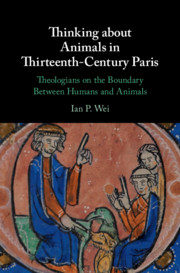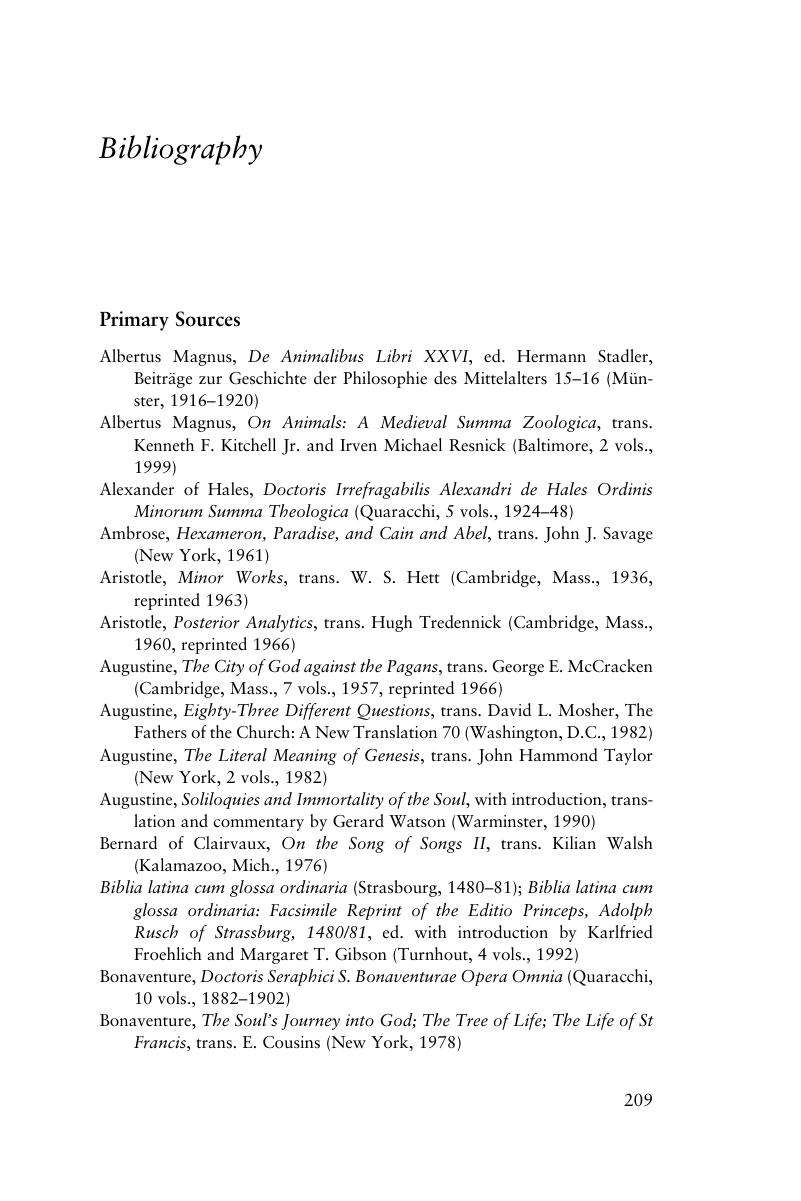 Thinking about Animals in Thirteenth-Century Paris
Thinking about Animals in Thirteenth-Century Paris Book contents
Bibliography
Published online by Cambridge University Press: 07 August 2020
Summary

- Type
- Chapter
- Information
- Thinking about Animals in Thirteenth-Century ParisTheologians on the Boundary Between Humans and Animals, pp. 209 - 218Publisher: Cambridge University PressPrint publication year: 2020
